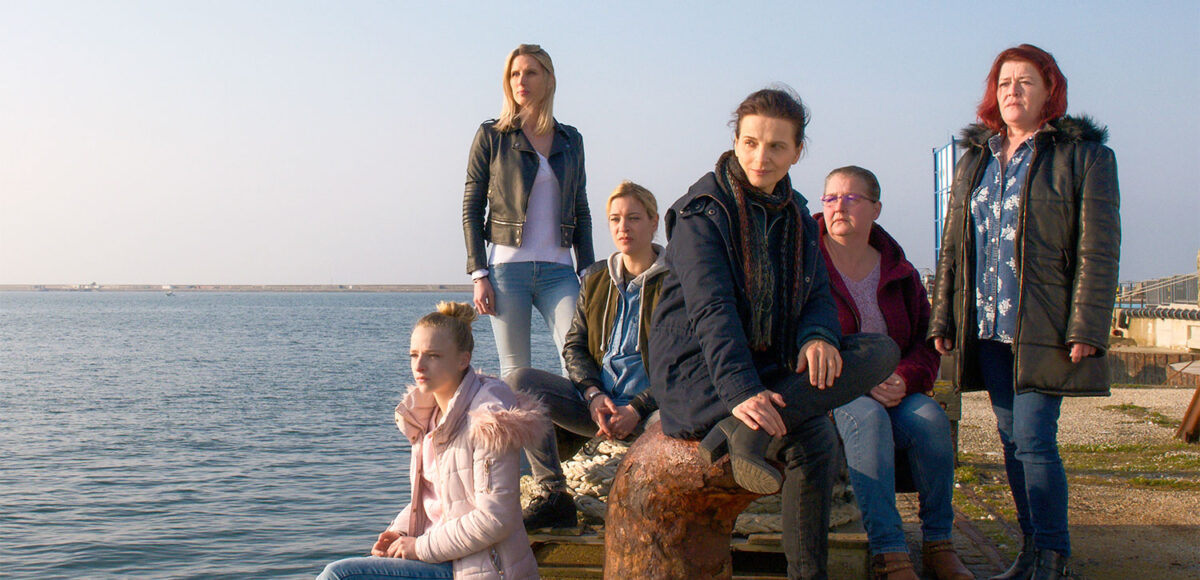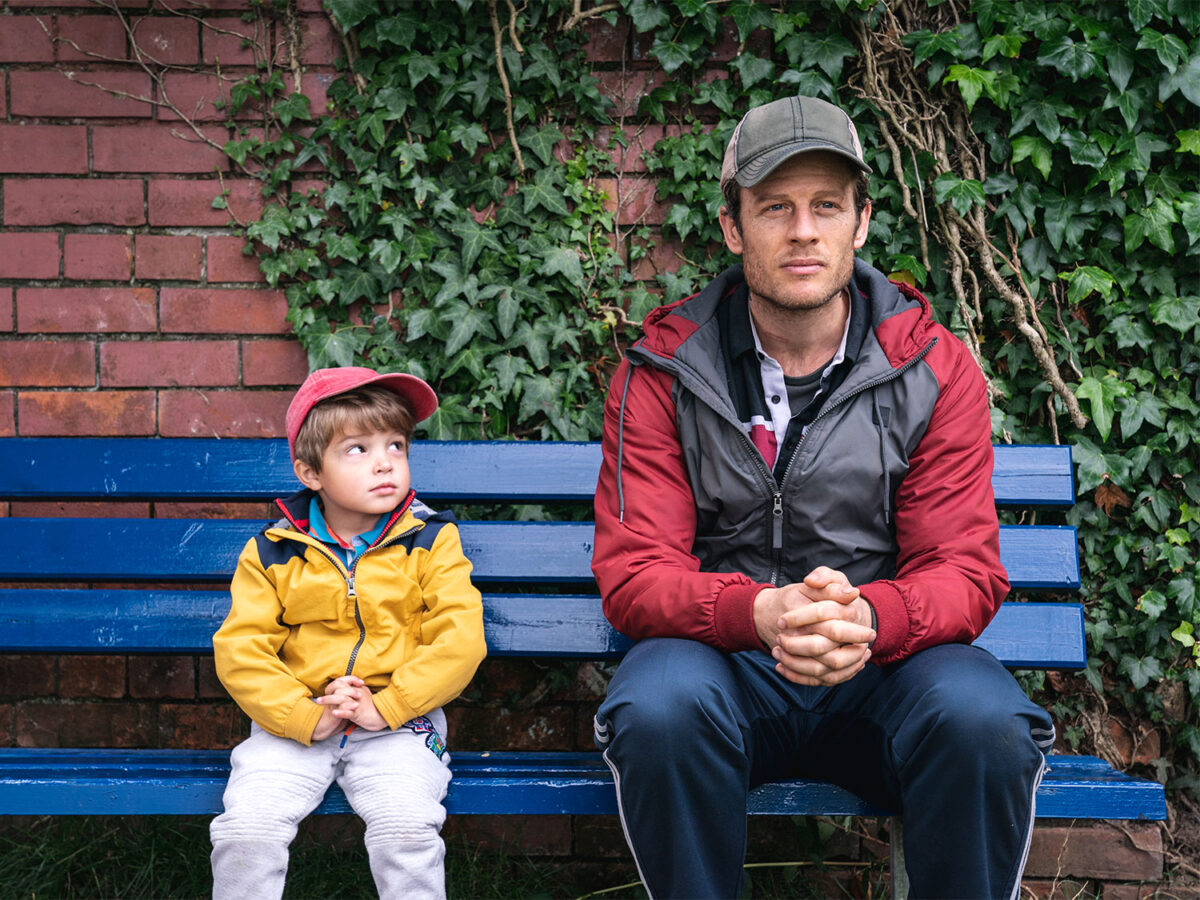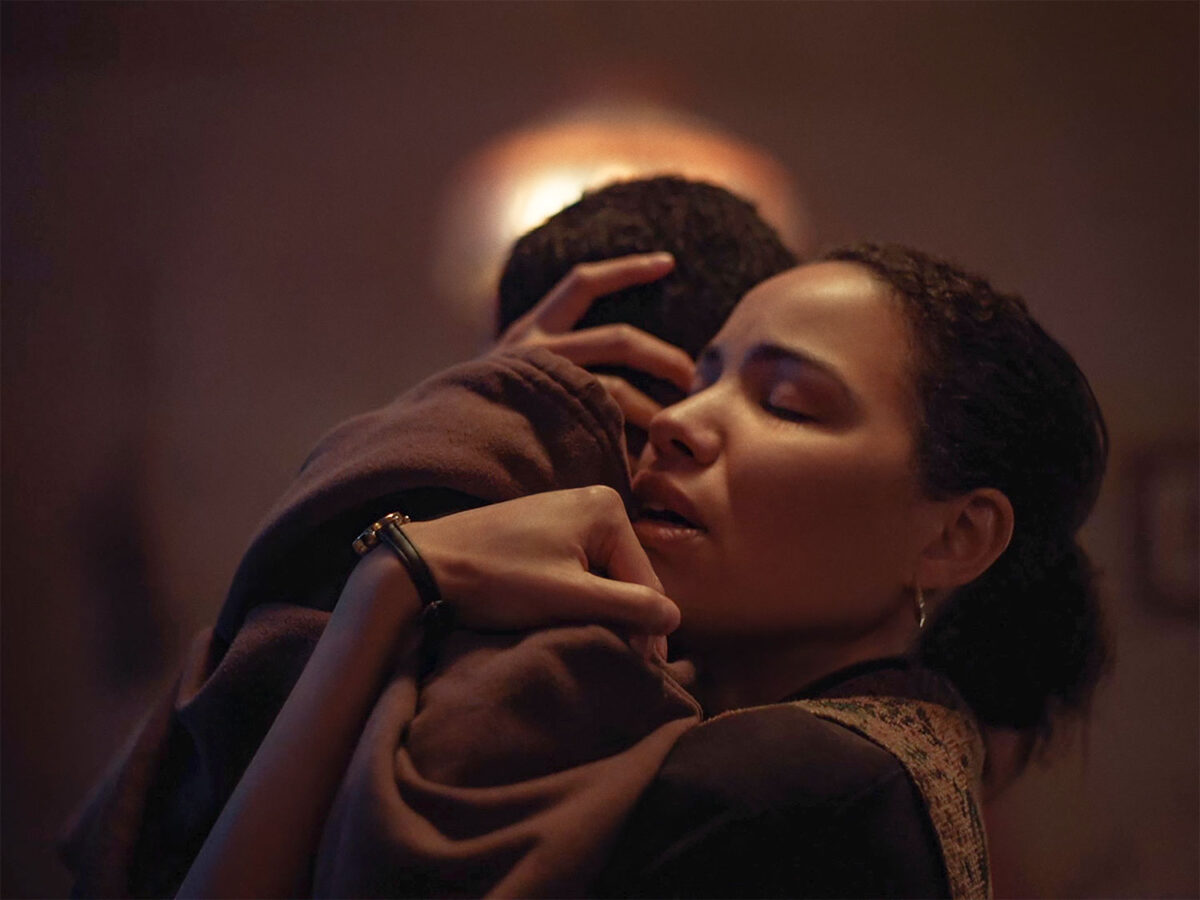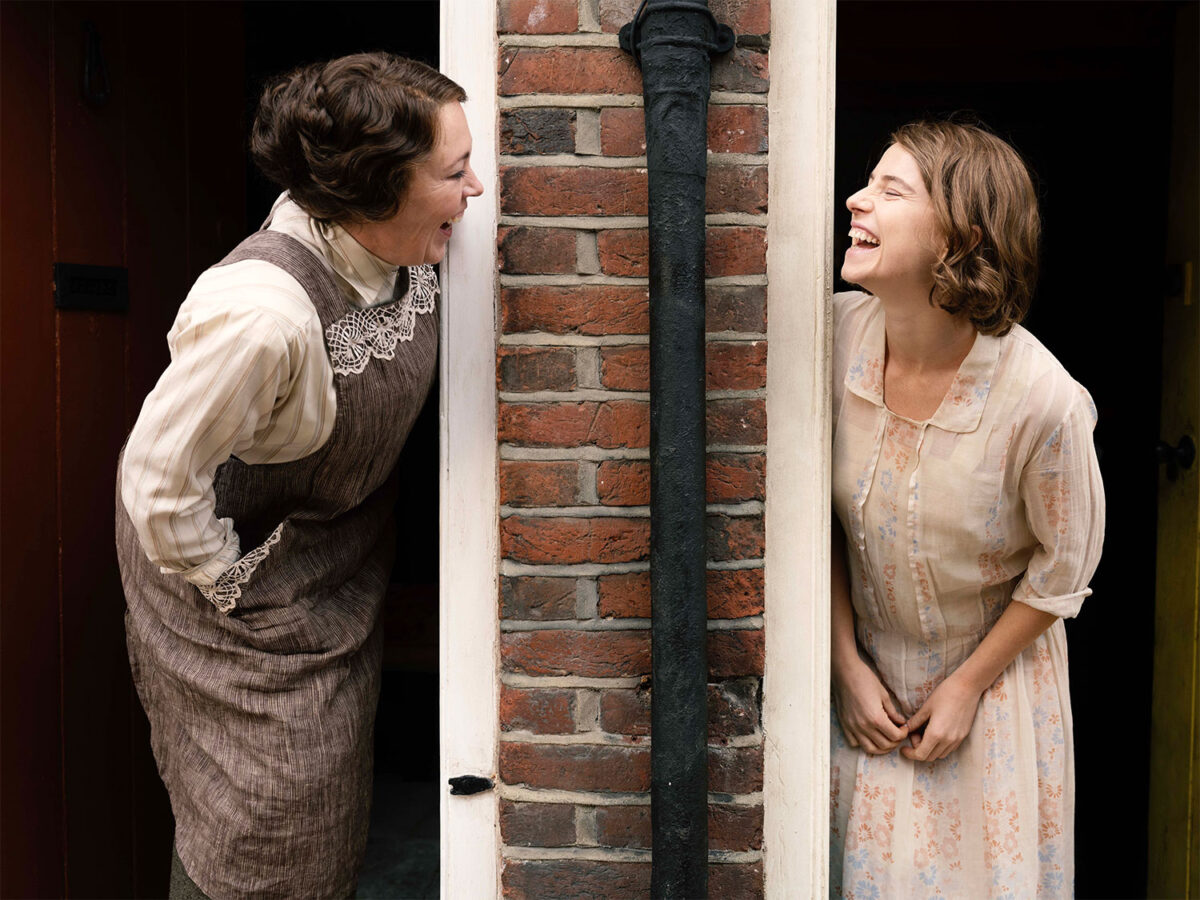Sometimes the desire to do good is harmful; sometimes it is helpful. In the case of Emmanuel Carrère’s excellent film “Between Two Worlds,” it can be both. The screenplay, by Carrère and Hélène Devynck, adapted from “Le Quai de Ouistreham” (“The Night Cleaner”) by Florence Aubenast, takes an in-depth look at the laborers working at or below minimum wage in back-breaking jobs. Focusing on building maintenance, as in cleaning crews, the vast majority of whom are women. The film immerses us in that world.
Renowned author Marianne Winckler (Juliette Binoche) has chosen her next project. Leaving the comforts of Paris and traveling to the depressed port of Ouistreham on the coast of Normandy, she goes undercover to investigate the lives of those on the fringes who are barely able to sustain a living working for cleaning companies. Dependent on these jobs to supplement the meager payments they receive from the state, there is stiff competition for these positions, even necessitating training courses. It’s not so much expertise at running a floor polisher that will get them ahead, it’s the ability to clean a hotel room in under five minutes that will keep them employed.
Applying for benefits at the local employment agency, Marianne claims that her husband abandoned her for a younger woman and now refuses to pay support. Although educated, she hasn’t worked in more than 20 years and has no viable skills. Cleaning is what she knows how to do. Given instruction on how to maximize her chances with one of the larger cleaning companies, Marianne is sent to a job fair to try to get hired.
She meets others, all searching for a way out of their poverty, trying desperately to get ahead. But cleaning is all they know and, like the very bitter Chrystèle, raising three children on her own, they cling to whatever crumbs are thrown their way.
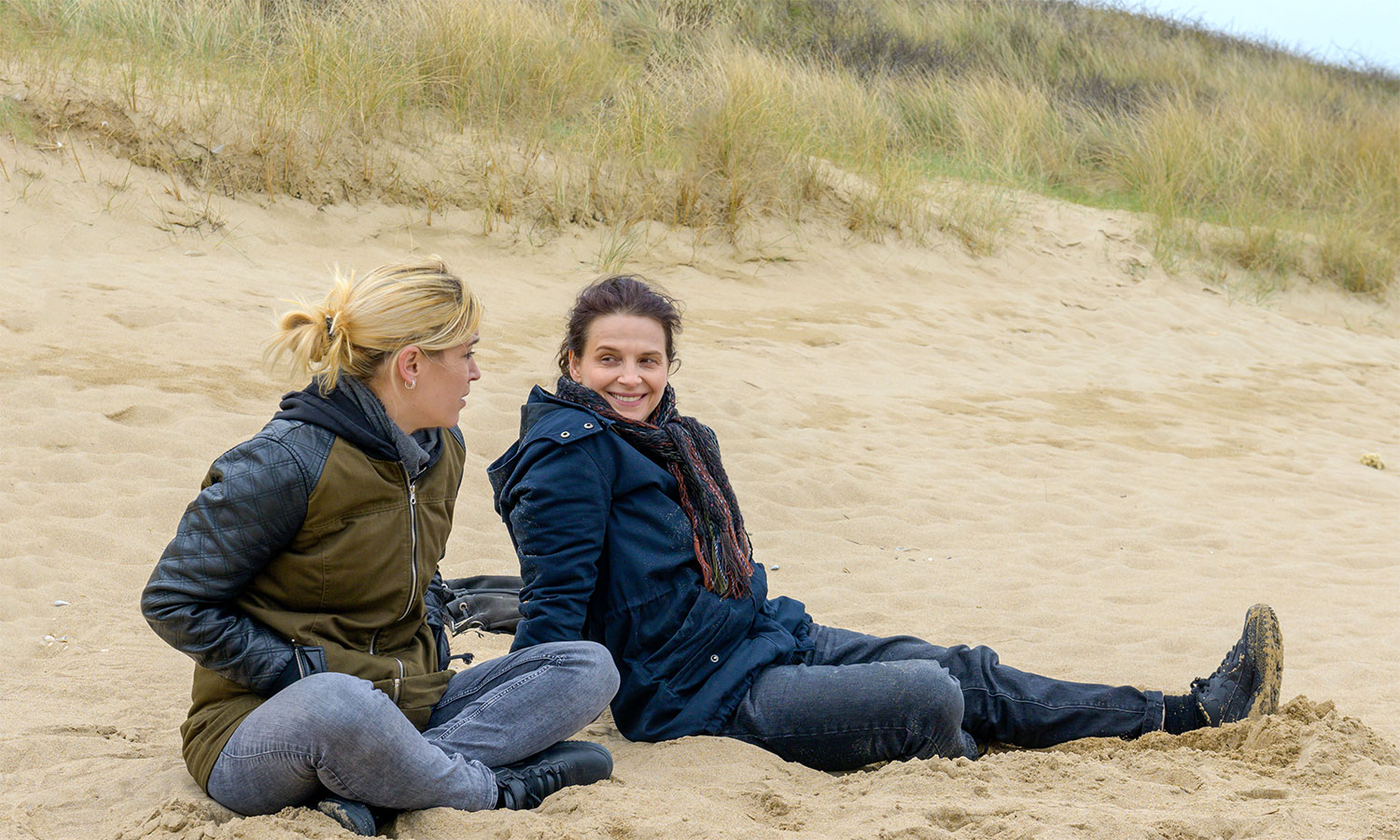
We first meet Chrystèle when she arrives at the employment agency without an appointment on the same day as Marianne. The agency has lost her employment files and without them she is ineligible for the benefits necessary to put food on the table and pay the rent. Angry, she makes it clear that she will not leave until those responsible for the screw up correct it. It is clear by her actions that this is not the first time something like this has happened and she is tired of being treated like a small, insignificant cog in a large wheel. Marianne will cross paths with Chrystèle again very soon.
Marianne, smiling, extolling the virtues of cleanliness and her expertise at wielding a toilet brush, interview skills taught her by the employment counselor, is immediately hired by a maintenance company and sent on her first hotel job. Instructed by the supervisor, she is assigned to a team to learn what is necessary. The pace is grueling, the hours difficult and the satisfaction non-existent. The team continues on to a hostel where the expectations are even more unrealistic. When the owners complain that the women have not done their jobs, Marianne protests, refusing to acquiesce to their unrealistic demands. She may have gained the gratitude of her fellow workers but she is fired from the company posthaste. Impressed, one of her co-workers, Chrystèle, gives her a lead to another job.
Ouistreham is a ferry port to Portsmouth, England, with three landings a day. Working non-stop, Chrystèle is able to handle all three shifts, five or six days a week to keep her kids clothed, fed and in school. The work is excruciating and the turnover is constant. New workers come and go on a regular basis and the need for employees is constant. She recommends Marianne for the job and she’s immediately hired. Each of the 30 cabins must be completely turned over in 1 1/2 minutes, changing the sheets, scouring the bathroom, cleaning the floors before the next group of passengers sets foot on board. Working as a team, dividing up the tasks, this group of disparate men and women help each other and make sure that Marianne doesn’t fall behind. It is here that she finds her support system and her story. These are the invisible workers in the shadows that are responsible for making everything come together seamlessly.
Riding home on the bus, exhausted, Marianne begins her diary on the women she meets, the jobs they do and the circumstances under which they must work. They embrace her as one of their own understanding where she’s come from, not knowing that all of it is a lie. She is included in their celebrations, their family activities, their innermost thoughts and dreams. If she succeeds in revealing their world to others, she believes it will mitigate any damage she might do to their trust. Her goal is to make the invisible visible and recognize their value in the process. It is this theme, the weighing of the greater good over the individual, that is tackled so well in this film.
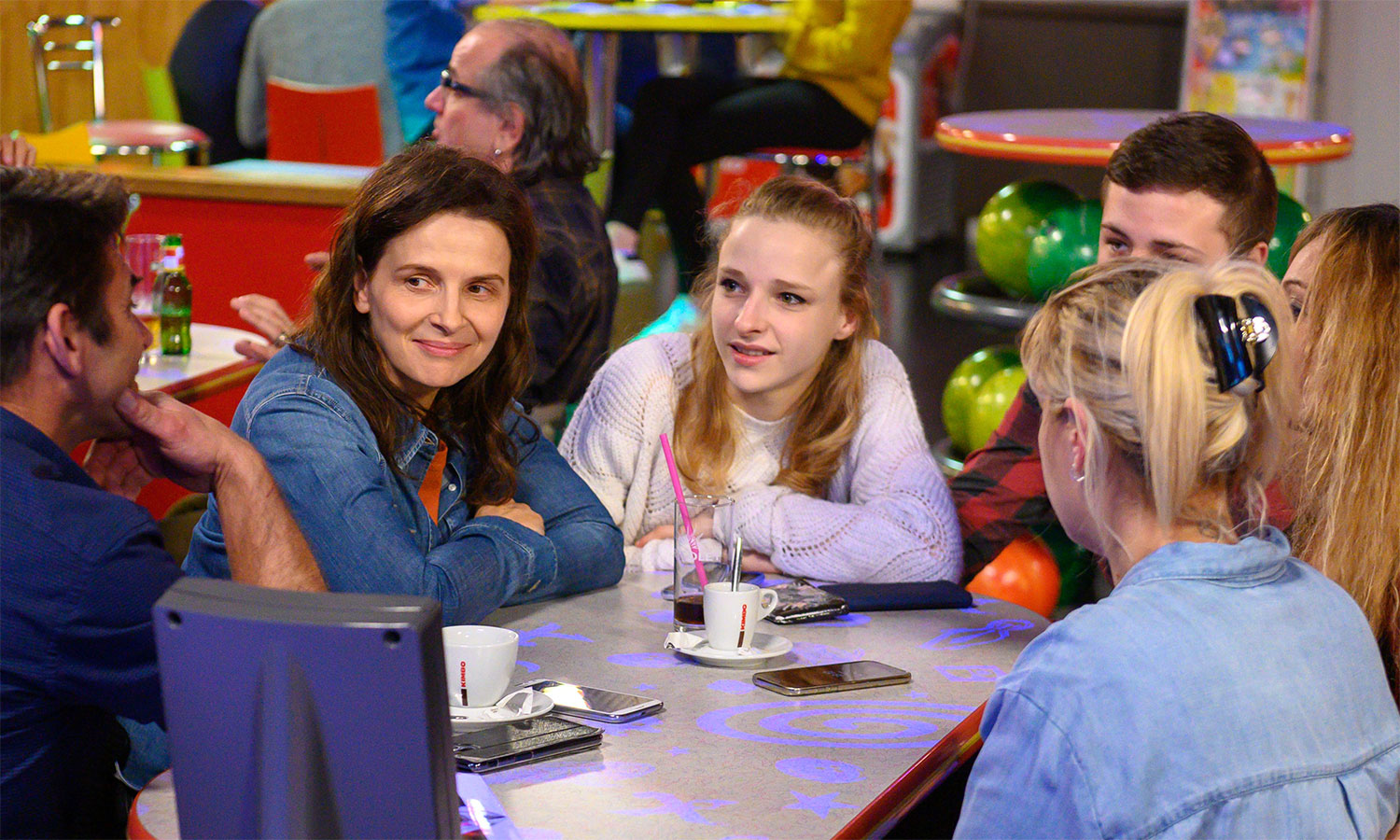
Juliette Binoche, Marianne, was the force behind this project from the beginning. Trying for years to option the book, Florence Aubenas had refused Binoche repeatedly until finally she agreed. Binoche’s belief in the premise of the book guided her characterization. It is hard to imagine anyone other than Binoche in the role. Her lack of vanity, her capacity for empathy, believability and ambivalence all added to the depth of this complex woman. But even more, it was her inclusiveness and approachability that helped the other actors find their footing. Here’s the rub; none of the players were actors. All of them were women, and in a couple of cases men, reenacting their day-to-day lives as the cleaners they portrayed.
Evelyn Porée, the forewoman of the ferry cleaners, and Emily Madeleine as Justine, one of the cleaners, were actually profiled in Aubenas’ book. Didier Pupin who plays Cédric, the man with the sad eyes and the ever-hopeful attitude who has a crush on Marianne, is, like the others, a non-professional actor who brought a believability that might not have been possible otherwise. But the two standouts who elevated the material and illustrate the boundaries between respect and betrayal are Léa Carne and Hélène Lambert. Carne, as Marilou, illustrates the naive hope that this is only a stage in her life and Lambert, Chrystèle, is the lynchpin on whom Marianne’s ruse rises and falls. I was positively floored that these two women had never acted before. Certainly, the use of non-actors adds a cinema verité feeling to the action, but I was convinced that both of those women had enjoyed long careers in film and television. Actually there aren’t any false notes in any of the performances of the men and women “portraying” their real life experiences. It is important to keep in mind that, besides working with an excellent script, they also improvised expertly and seamlessly, adding an extra layer of truthfulness.
Cinematographer Patrick Blossier, whose illustrious career stretches back to the 1970s with directors like Agnès Varda, Costa-Gavras and Dominik Moll, among others, worked with Carrère on his previous films. He brought an authenticity that underpinned the action and whose use of lighting deepened the action and heightened the claustrophobia of the interiors.
Carrère knew just how to enhance the comfort level of his cast and successfully produce a film that illustrates a life unknown to most. He tells a straightforward story that has a philosophical undercurrent. When you lie for a good cause does it make it any less of a lie? When you cross a boundary for the greater good is it still a betrayal? You’ll have to see the film and answer these questions yourself.
Now playing at the Laemmle Monica Film Center.
Neely Swanson spent most of her professional career in the television industry, almost all of it working for David E. Kelley. In her last full-time position as Executive Vice President of Development, she reviewed writer submissions and targeted content for adaptation. As she has often said, she did book reports for a living. For several years she was a freelance writer for “Written By,” the magazine of the WGA West, and was adjunct faculty at USC in the writing division of the School of Cinematic Arts. Neely has been writing film and television reviews for the “Easy Reader” for more than 10 years. Her past reviews can be read on Rotten Tomatoes where she is a tomato-approved critic.



